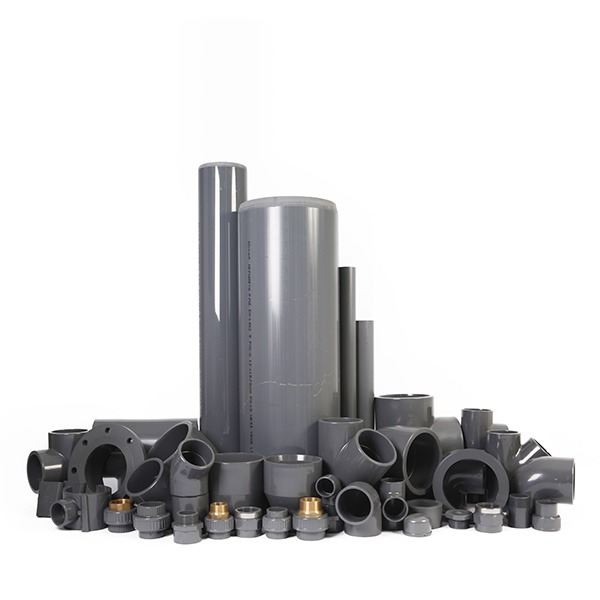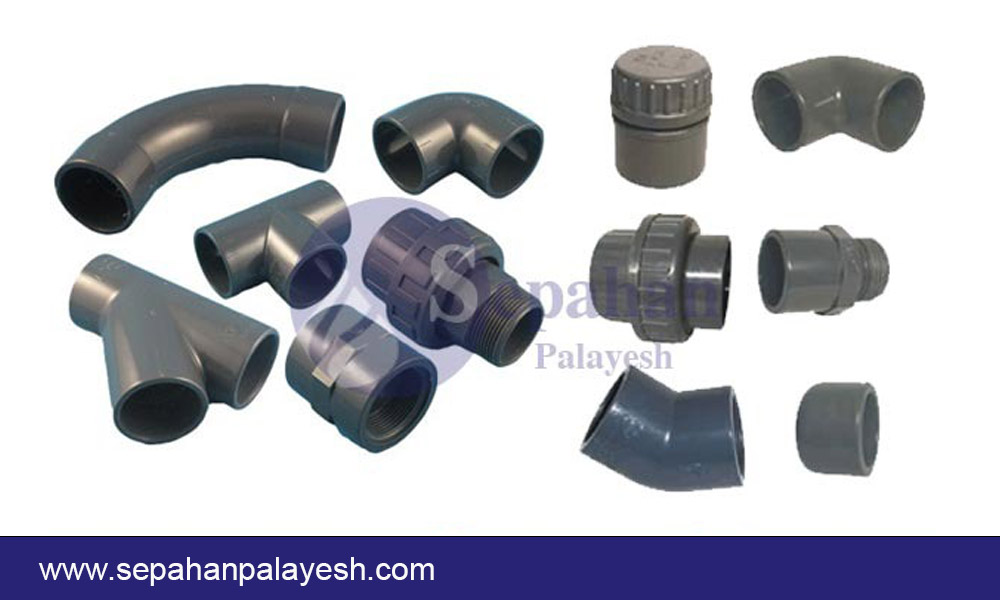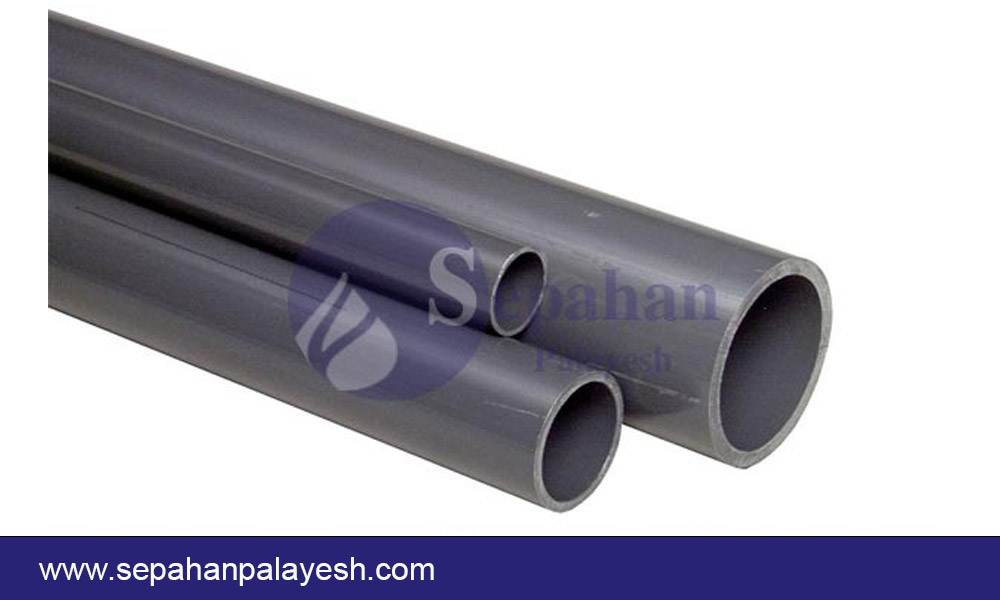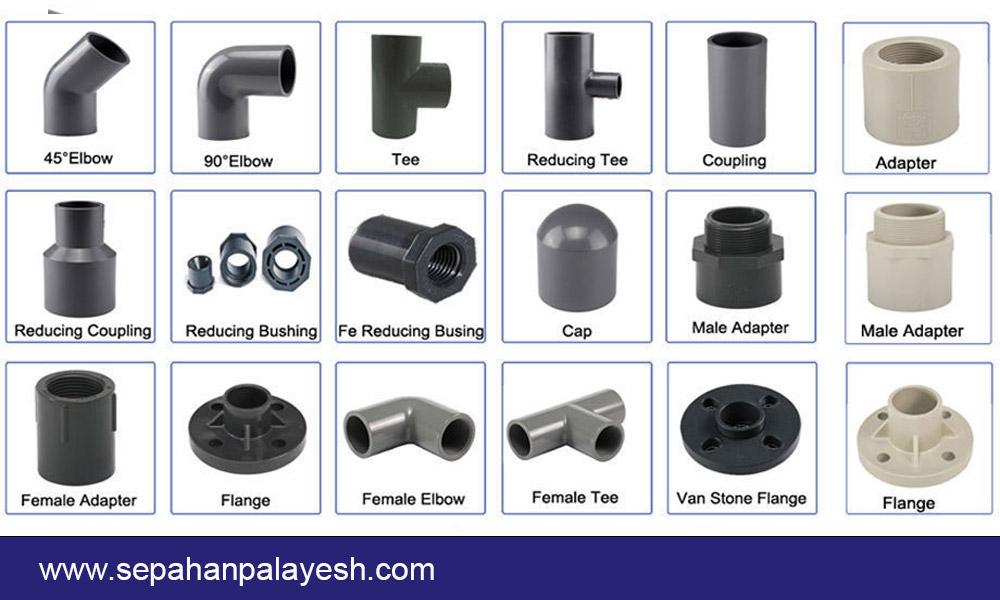UPVC Pipes and Fittings for Water Desalination
Home » Water Desalination System » UPVC Pipes and Fittings

Water desalination pipes and fittings
Water is the main element used in desalination and wastewater treatment devices. Various pipes and connections are necessary to direct water to these devices. Various pipes with different dimensions and diameters are used to set up desalination systems. These pipes and fittings form the infrastructure for water circulation throughout the system. The pipes and fittings must be able to circulate the required water without leakage, pollution, or any pressure drop, as any defects can cause damage to the equipment.
What are UPVC pipes and fittings?
In the past, galvanized steel and plastic pipes were used for desalination piping systems. These types of pipes might rust or corrode over time due to chemicals and disinfectants in the water, leading to water leakage, breakage, and significant damage. Therefore, new UPVC pipes and connections are used in desalination systems to solve the problems.
UPVC stands for unplasticized polyvinyl chloride, which means polyvinyl chloride without plastic. This material is in various pipes and fittings. UPVC pipes offer high resistance and do not have the issues associated with other types of pipes.

Specific features of UPVC pipes
UPVC pool pipes and fittings have inherent features that set them apart from other materials.
- Resistance to electrochemical reactions
This characteristic prevents corrosion over time, increasing product lifespan. - Resistance to chemical fluids
UPVC pipes are utilized to transport various types of fluids. These pipes are highly resistant to fluids, making them easy to transport. - High tensile strength
High tensile strength means that UPVC pipes have good flexibility. This flexibility allows for easy use in harsh environments and conditions. UPVC pipes are appropriate for small spaces where other pipes wouldn’t fit, making them perfect for piping water desalination. The last important feature of UPVC pool pipes is their resistance to impact, scratches, and corrosion.

Advantages of UPVC pipes and fittings
UPVC pipes and fittings have many advantages due to the chemical compounds used in them, making them a suitable alternative to other types of pipes in desalination piping systems. Some of the main advantages of these pipes and fittings are:
- High corrosion resistance:These pipes resist chemicals and ultraviolet rays and do not suffer from corrosion, leakage, or breakage.
- Lightweight: UPVC pipes weigh approximately one-fifth of metal pipes. Their light weight makes transportation and installation easier.
- Cost-effectiveness: The low maintenance and long lifespan of these pipes made them a very cost-effective material.
- Absence of deposition: Unlike metal pipes, UPVC pipes and fittings are not clogged by solvents and disinfectants and do not cause pressure drops in water transmission.
- Heat resistant: These pipes are highly resistant to heat and fire and can withstand temperatures between 0 and 60 degrees Celsius. Because of this feature, UPVC pipes and fittings are suitable for transporting water or other liquids with high temperatures and can also be used to protect electrical systems.
Application of UPVC pipes and fittings
The use of UPVC pipes and fittings is not limited to water desalination. This type of pipe and fittings are used in many other cases due to their strength and long life. The most important applications are:
- Drinking water supply lines
- Sewage discharge lines
- Residential and commercial plumbing system
- power plants
- Food factories
- Sauna and jacuzzi pool plumbing

Application of UPVC pool pipe for swimming pool piping
These pipes are commonly used for swimming pool systems and can serve as inlets and outlets for pools and Jacuzzis. When using these pipes for a pool, the pool and jacuzzi walls must be at least 40 cm, and UPVC pipe thickness more than 4 mm. Additionally, it’s crucial to ensure that the size of the pool pipe, especially for the pool pump piping, is proportional to the size of the pump and the volume of water in the pool.
The benefits of using UPVC pipes and fittings for swimming pools are manifold. They are easy, quick, and cost-effective to install. Also, they are resistant to corrosion and chemicals. While cheaper pipes are available for the pool system, using them can cause irreparable damage.
Differences between UPVC and PVC pipe
Typically, PVC is not suitable for window frames. Unlike UPVC pipes and fittings, these types of fittings are much less resistant to various weather conditions. UPVC pipes are also less susceptible to chemical damage and are used in medical equipment. Additionally, UPVC material is used as a tooth retainer.
UPVC pipes are more durable than PVC pipes and have a much longer lifespan. They are also easier to recycle. Additionally, unlike PVC, UPVC pipes do not release harmful substances into the environment, such as hydrogen chloride vapors and phthalates. So UPVC pipes and fittings are safer and more environmentally friendly options.
UPVC pipes quality
It is a common misconception that UPVC and polyethylene pipes are the same. Polyethylene pipes do not have any additives, so they are fragile. Some manufacturers use a filler substance in polyethylene pipes, compromising their quality. In contrast, standard UPVC pipes are soft and highly flexible, making them impact-resistant. Due to this confusion, people often buy these pipes without considering their quality.
Factors affecting the price of UPVC pipes and fittings
Manufacturers of UPVC pipes utilize various compounds and additives in their construction, with each compound affecting the price of the pipes. Factors such as diameter and thickness play a significant role in determining the cost of UPVC pipes. Moreover, the composition of each UPVC pipe also influences its pricing.
